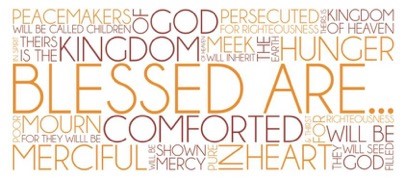Once again, our children find it hard to let us return home to Newcastle, and yet I know they understand the reason why I do what I do. This reminds me of a discussion we held recently at the Diocesan Pastoral Ministers meeting about a chapter on the ‘Theology of Lay Pastoral Ministry’ in the publication Faithful Stewards of God’s Grace.

Here are some of the profound words from that chapter which spoke to the lay pastoral ministers from around our diocese, as to why they are so involved and committed to ministering on behalf of the Catholic Church.
All forms of ministry find their place within the communion of the Church, in the one mission of Christ. The aim of Faithful Stewards of God’s Grace is to understand the place of lay pastoral ministry within the common vocation of discipleship, and how it relates to other forms of ministry. To do this, it is important to look at the foundations of this form of ministry in theology and Church teaching. They are ‘a participation in Jesus Christ’s own ministry as the Good Shepherd who lays down his life for the sheep (cf. Jn 10:11), the humble servant who gives himself without reserve for the salvation of all (cf. Mk 10:45).’ The following traces the roots of lay pastoral ministry in Christ’s call to participate in the communion and mission of the Church.
 The joy of the Gospel fills the hearts and lives of all who encounter Jesus. It is Jesus who takes the initiative and calls people to follow him. He calls each person by name, just as the Shepherd ‘calls his own sheep by name and leads them out.’ By imitating Christ, by sharing in his life, and responding in faith to his call, Christ’s followers become ‘disciples of God.’ To follow Jesus is not just to learn about him, but also to be remade according to his likeness, the likeness of God. Christ is the servant who, out of great love, ‘lay down his life for his friends’. Showing love for one another is the true sign of discipleship. Christ’s disciples ‘serve each other unto salvation,’ and carry out the truth in love.
The joy of the Gospel fills the hearts and lives of all who encounter Jesus. It is Jesus who takes the initiative and calls people to follow him. He calls each person by name, just as the Shepherd ‘calls his own sheep by name and leads them out.’ By imitating Christ, by sharing in his life, and responding in faith to his call, Christ’s followers become ‘disciples of God.’ To follow Jesus is not just to learn about him, but also to be remade according to his likeness, the likeness of God. Christ is the servant who, out of great love, ‘lay down his life for his friends’. Showing love for one another is the true sign of discipleship. Christ’s disciples ‘serve each other unto salvation,’ and carry out the truth in love.
Although disciples are called individually by name, all share in this life with Christ and with one another. As a result, ‘we, who are many, are one body in Christ, and individually we are members one of another.’ These words of St Paul echo the teaching of Jesus himself, who prayed for the unity of God’s people, for the unity of disciples with each other, as an image and extension of the unity that binds Father, Son, and Holy Spirit. All who are baptised into the Christian faith are inseparably joined together ‘as members of Christ and members of the body of the Church.’ It is within this context, of the unity or communion of Christ’s disciples, that discipleship and ministry in the Church, can be understood. (p24)
In talking with each other, it was suggested that people who ‘work’ in ministry, be called by name as disciples, not volunteers or church workers. While I was talking, a week ago, with a group of parishioners from Wallsend-Shortland Parish, they seemed to resonate with being called disciples rather than volunteers. Disciples are called by name and respond with grace.
Disciples reflect this life if they live in ‘the spirit of communion and collaboration and if … relationships are characterised by equality, mutuality and reciprocity.’ Pope John Paul II emphasised the importance of promoting a ‘spirituality of communion,’ of cultivating and extending communion at every level of the Church’s life: between the ordained – bishops, priests, and deacons – consecrated persons, pastoral workers, and the entire People of God. All of these relations must be clearly characterised by communion. In such a ‘spirituality of communion’ disciples think of their brothers and sisters in faith as ‘those who are part of me’. This spirituality implies the ability to see what is positive in others, to welcome it and prize it as a gift from God, not only as a gift for the brother or sister who has received it directly, but also as a ‘gift for me’. It means, getting to know how to ‘make room’ for others, bearing ‘each other’s burdens’ and resisting the temptations which provoke competition, careerism, distrust and jealousy. (p25)
Pastoral ministers, both lay and consecrated religious, share in the common priesthood of all the baptised. Their vocation to ministry is rooted in the sacraments of initiation and has several distinguishable characteristics. First, as intentional followers of Christ, their lives make visible an explicit faith commitment to love God and neighbour. Second, through their relationships with others, the world around them, and with God, they enter the path of true growth and yearn for the Christian ideal, seeking a level of mature disposition where they can be truly free and responsible. Third, they have recognisable and discerned gifts for leadership, which make them ready to accompany others on the way of Christian discipleship. Fourth, they engage in suitable preparation and formation, and receive appropriate ecclesial authorisation, to serve publicly in the Church. Fifth, through a process of commissioning or appointment, they enter into a new and distinctive relationship within the rest of the community. Finally, as participators in the one ministry of Christ, they have an explicit and intentional relationship of mutual collaboration with those in ordained ministry. (p29)
These six characteristics seem to provide us with key skills for church leadership position descriptions.
Lay pastoral ministry, like all forms of ministry in the Church, is a participation in the ministry of Christ. Thus, while all disciples ‘should find ways to communicate Jesus wherever we are,’ this is especially true for lay pastoral ministers. These have the task of spreading Christ’s message of communion, of witnessing to Christ, and initiating others into the way of Christian discipleship, through their work within the life of the Church. They are also tasked with maintaining a real commitment to applying the Gospel to the transformation of society. Their pastoral activity needs to consistently embody and promote a meaningful relationship with Christ. This relationship ‘heals, promotes and reinforces interpersonal bonds’ with members of the community of the faithful, and with God.
Lay pastoral ministers, in their leadership responsibility within the community, assist other disciples to ‘remain steadfast in [their] intention to respect others, to heal wounds, to build bridges, to strengthen relationships and to “bear one another’s burdens” (Gal 6:2).’ By accompanying and assisting others in this way, lay pastoral ministers enable and encourage the transformation of the world. (p30)
This concept of transforming our world marries nicely with my message from last week about the place of religion in our society.

And to finish this message on this Father’s Day, the following prayer was prayed on Friday as part of our Father’s Day Liturgy, at the Diocesan Offices. It bore the name Beatitudes for Fathers
Blessed is he who appreciates that children are gifts God has entrusted to love, cherish, guide and protect, to help them understand that they are loved in the good times and in the down times.
Blessed are the poor.
Blessed is he who knows how to comfort, who can empathise with his family’s tears, fears and struggles and who is not afraid to show his own emotions.
Blessed are those that mourn.
Blessed is he who enjoys spending time with his loved ones, who is gentle, patient and encouraging, who appreciates that meekness isn’t weakness and that winning isn’t everything.
Blessed are the meek.
Blessed is he who, by example, teaches respect for others and for self, who seeks out the positive and minimises the negative, who guards against smallness of spirit.
Blessed are those who hunger for justice.
Blessed is he who cultivates a humble and listening heart to be firm and compassionate, who acts with generosity of spirit and respect, who teaches by example the importance of forgiving and being forgiven.
Blessed are the merciful.
Blessed is he who loves without possessiveness, who is able to affirm others’ dignity and worth as well as the gifts associated with their gender, respecting them for who God made them to be.
Blessed are the pure of heart.
Blessed is he who encourages children, who is able to dialogue with them and give them space to express themselves, who does not condemn but shuns the aggressive approach and the language of violence.
Blessed are the peacemakers.
Blessed is he who encourages a generous and open heart, who helps children understand how to be their own person, how to pursue what they know is fair and right, to be steadfast but not stubborn.
Blessed are they who are persecuted in their search for righteousness.
(Beatitudes for Fathers adaptation of ‘Father’s Day’ from ‘Along the track’ by Jim Quillinan. © Catholic Education Office, Diocese of Sale. All rights reserved. Used with permission.)
I hope you have known fathers who are like this, either in your own father, the father of your children, your father-in-law or a father-like figure. The attributes of good fathering are to be fostered and applauded.

